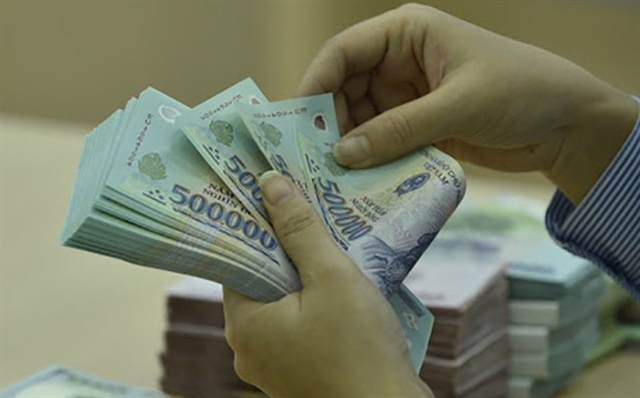Many banks have no longer benefit from demand deposits as the low-cost capital source has tended to decline sharply due to the impacts of the COVID-19 pandemic.

Many banks no longer benefit from demand deposits as the low-cost capital source has declined sharply due to the impacts of the COVID-19 pandemic.
For banks, attracting a high proportion of demand deposits is important, because it creates a cheap source of capital. Normally, the interest rates of demand deposits are much lower than term deposits, being only around 0.2 per cent per annum.
At Kien Long Commercial Joint Stock Bank (Kienlongbank), though the bank’s customer deposits still grew by up to 10.4 per cent in the first quarter of this year, the amount of demand deposits significantly dropped by nearly 31 per cent to just more than VND1 trillion (US$42.9 million), Bizlive.vn reported.
The bank’s current account savings account (CASA) fell sharply from 4.62 per cent at the beginning of the year to 2.88 per cent by the end of June, being in the group of banks with the lowest CASA among the surveyed banks.
Similarly, the demand deposits at Bac A Commercial Joint Stock Bank (BacABank) decreased by 27.4 per cent in the first two quarters of the year, causing its CASA to plummet to a very low level of just 1.21 per cent.
Some other banks also recorded sharp fall of demand deposits, including Saigon Hanoi Commercial Joint Stock Bank (SHB, down by 21 per cent), Export Import Commercial Joint Stock Bank (Eximbank, down by 18.4 per cent) and Southeast Asia Commercial Joint Stock Bank (SeABank, down by 14.8 per cent).
In particular, SHB is one of the banks that recorded a sharp decline in CASA in the period, down from 9.38 per cent at the beginning of the year to only 6.95 per cent by the end of June.
At Lien Viet Post Commercial Joint Stock Bank (LienVietPostBank), the CASA also decreased 2.28 per cent to 12.27 per cent, while SeABank saw a decline of 3.71 per cent to 8.73 per cent.
Even the three banks which have strong CASA including Military Commercial Joint Stock Bank (MBB), Vietnam Technological and Commercial Joint Stock Bank (Techcombank) and Commercial Joint Stock Bank for Foreign Trade of Vietnam (Vietcombank) also recorded a decline in CASA.
Despite leading the surveyed group with CASA of 35.61 per cent, MBB’s experienced a slight CASA decline from 38.38 per cent at the beginning of the year. Similarly, Vietcombank and Techcombank respectively recorded CASA falls of 1.98 per cent and 0.05 per cent.
The decline in banks’ demand deposits has been recorded as Viet Nam’s economy has been negatively affected by the COVID-19 pandemic, including a social distancing period.
Statistics of the State Bank of Viet Nam also showed the amount of deposits on payment accounts of the banking system experienced a sharp decline.
According to experts, the high CASA ratio will create a premise for the bank to improve its net interest margin (NIM) while keeping the lending rates at competitive levels in the market.
That is also the reason why in the past few years, the Vietnamese commercial banking system has witnessed an increasingly fierce race to increase CASA, with banks introducing many policies to attract demand depositors, such as exemption of transaction, money transfer and withdrawal fees. — VNS





